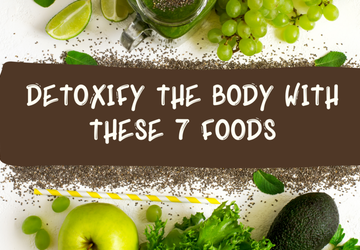Maternal self-care in the early postpartum period is essential, including focusing on the mother's physical and emotional well-being. The postpartum period typically lasts up to 6 weeks after delivery. It is a critical time for the mother, as an understanding of the transformations the mother's body undergoes is established. It is a time for reconnection with their bodies. It is necessary to take good care of oneself to recover strength.
Maternal self-care in the early postpartum period is essential, including focusing on the mother's physical and emotional well-being. The postpartum period typically lasts up to 6 weeks after delivery. It is a critical time for the mother, as an understanding of the transformations the mother's body undergoes is established. It is a time for reconnection with their bodies. It is necessary to take good care of oneself to recover strength.
Here are the top 10 maternal self-care practices for mothers' mental and emotional well-being, as motherhood can significantly impact a woman's daily life.

The Top Ten Maternal Self-Care Practices to Implement Postpartum
Here are the ten most essential postpartum self-care practices that you should implement:
1.Nourish Your Body/Engage in Physical Activity
Healing a mother's body may consist of various factors and activities. Nourishing your body and engaging in physical activity are reported to be helpful during this time. To fuel your body and maintain energy levels, engage in cardio and focus on re-achieving your prepartum body.
Always consume enough water throughout the day and eat wholesome meals and snacks. Remember to take things slowly to feel like yourself again. According to a report, it usually takes 2 to 3 years to recover from one childbirth completely. So, taking care of yourself should be one of the main focuses of new mothers.
2.Practice Gratitude
Being grateful can be your ultimate salvation from postpartum depression. You can develop a thankfulness practice. By frequently identifying and appreciating the good things in your life, you can create an optimistic point of view, which is essential for your and your child's welfare.
Spend time thinking about your motherhood blessings and the good things that came with them, and write them down or, if you are comfortable, share them with loved ones.
3.Connect with Nature/Practice Mindfulness and Meditation
The connection between nature and the human mind and health is inextricably coupled. Spending time in nature by being outside or just watching birds or clouds from the window of your room can be incredibly effective. Connecting with nature can be the easiest way of self-care. Set aside time daily to practice mindfulness or meditation by wandering through parks, enjoying trekking, or relaxing in a garden.
You can feel more rooted and in the moment by spending time in nature, which has a calming effect, like lowering tension and fostering peace and relaxation in the mind. Mindfulness and meditation can help raise self-awareness as well.
4.Establish Boundaries
You can only complete self-care by setting boundaries. To ensure you have a healthy relationship with yourself, identify areas for your limitations, communicate assertively by being specific, and establish clear boundaries with others. Inform others of your requirements and restrictions to make the time and space for your welfare, and don't be ashamed to decline requests when required.
Remember that establishing boundaries is a unique and individual journey, and discovering what truly works for you may require some time. So, be open to making modifications along the way.
5.Prioritize Sleep
It's crucial to get adequate sleep for your self-care and health. Create a relaxing night routine, and stick to a regular sleep schedule. Limit mind-stimulating activities and avoid using electronics right before rest. You can manage your stress and pay attention to your body's demands by prioritizing your sleep. A good night's sleep can enhance your happiness, vitality, and general well-being. Consult a healthcare practitioner for advice if you consistently have sleep issues.

6.Connect with Others
Postpartum women need high social support to maintain social ties with family, friends, and other mothers. According to the subgroup analysis, it is observed that women with multiparity had a five times higher risk of PPD if their social support was low.
A supportive social network during this time can help maintain your well-being and can help reduce stress, depression, and anxiety. Obtain emotional support by joining support groups, going to playdates with friends, or arranging frequent get-togethers to talk and get advice.
7.Journaling/Carve Out "Me Time"
Journaling is an affirmative way of unwinding and decluttering your thoughts. The ultimate way to learn to cope with postpartum depression or anxiety is consistent journalling. It helps the brain dump emotions when everything doesn't feel like making sense. Spending time alone can set aside some time to record your feelings, experiences, and thoughts in a notebook. You can examine your feelings and consider your mothering journey with the aid of this practice.
8.Learn to Say Yes to Help
Accepting help from others requires a courageous mind and soul. To cultivate humility, prevent burnout, enhance efficiency, and learn new insights, taking aid from others is essential. Divide the workload by permitting yourself to rely on your support network. This could be through accepting help with child care, meal preparation, or housework.
9.Practice Self-Compassion
Practicing self-compassion and being mindful of your inner dialogue can help with maternal self-care. Mothers who practice positive self-talk can care for themselves and their families more effectively. Replace self-critical thoughts with affirmations and kind words. Moreover, remind yourself of your strengths and accomplishments as a mother daily as a part of your self-care routine.
10.Engage in Activities That Bring Joy
Engaging in activities can enhance your overall well-being and happiness. Try making a list of activities that make you happy in your routine. Prioritize these activities by reflecting on your interests. You can also explore new activities; it could be anything that elevates your spirits, such as participating in creative activities, spending time in nature, or listening to music.
Make time for what matters and balance effort and relaxation. By doing this, your mental health can improve a great deal. Enhancing your joy and finding your preferences require time and effort, so honor your choices and do what nourishes your soul and brings you genuine happiness.
Conclusion
In conclusion, Maternal Self-Care Practices for Mental and Emotional Well-being are extremely important. The importance of these practices cannot be overstated. Research shows that these are associated with positive physical, developmental, cognitive, and emotional benefits for your baby in the short and long term!
If maternal self-care is left untreated, postpartum depression can interfere with mother-child bonding and cause problems in your newborn's life. Sometimes, it can become an ongoing depressive disorder for mothers. Thus, adjusting to life after birth is as crucial as your self-care.


